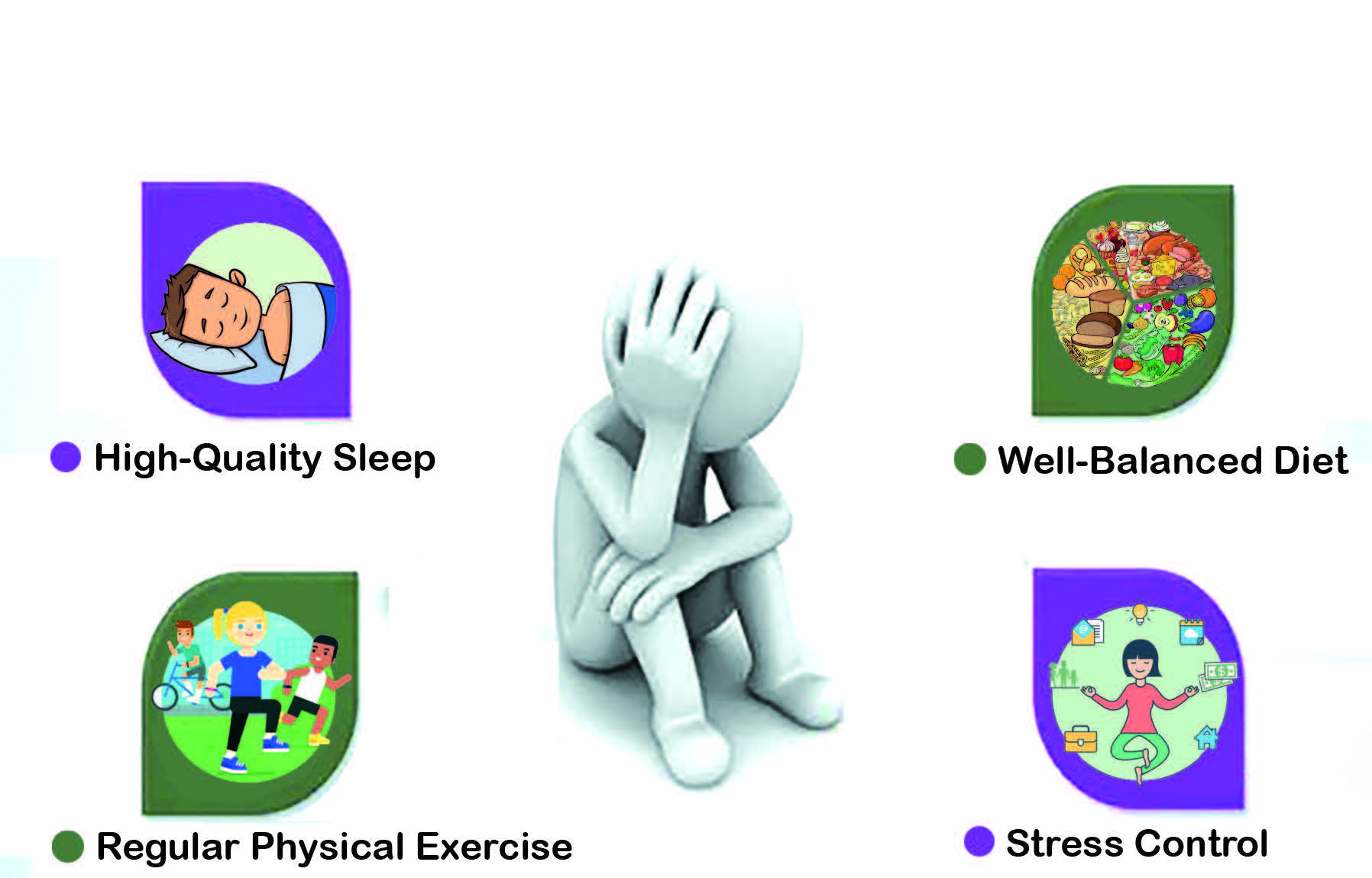30 June
I WAS used to juggling several tasks at different workplaces outdoors in the past. Despite the hassle, I enjoyed my busy days to the fullest on sites. I was above the moon.
With less outdoor work nowadays, I’m compelled to be glued to a desk almost all the time in the office. This deskbound job gets me sedentary and sluggish except for some bouts of going to a pantry or a washroom. Not getting used to it, a state of mental or physical discomfort creeps in me after some time at the desk. Indeed, I feel exhausted. I feel drained. I feel fatigued. Yes, I’m tired.
Others may have experienced it either that way or another. It could be due to work-related factors such as work roster schedules, length of work shifts and inadequate rest time, or personal abnormal lifestyles, or lack of essential nutrients, or poor health, or stress.
The change of work or nonroutine work causes the disruption in human’s biological clock in which circadian rhythm is lost out and hard to assimilate with it. Then, undue tiredness sets in. Sleep deprivation follows, and so do some ill consequences of physical inability and mental impairment. Among them are: -
• persistent drowsiness,
• some extent of impatience,
• easy distraction,
• reduced instinct,
• shorter attentive time,
• slower reactive speed,
• proneness to error,
• increased clumsiness,
• unusual less conversation,
• poor judgement,
• stimulant usage and
• shortcut way resorted to complete jobs.
Those symptoms are precedent to the at-risk behaviour of a tired person whose subsequent unsafe act lies precariously compromisinghis or her own safety.
There is a much likelihood of an accident occurring. Its risk shall not be underestimated either. The levels of risk can be low with minor injuries (bruises or lacerations) or medium with serious injuries (fractures or amputations) or catastrophic with fatality.
To tackle it, fellow colleagues/ workmates need to cultivate a spirit of comradeship and keep their alertness on each other alive on/off the job. Indeed, it is a buddy system that is to be nurtured and adopted in the workplace. In face of work exigencies or long work hours, a buddy system does suit well in the situation whereby immediate assistance from others is rendered by means of interruption, replacement, support and encouragement.
A self-care is a stronger tool to do away with tiredness. One needs to be mindful of his or her biological clock to function well with the following aspects.
High-Quality Sleep
Sleep disorders can take a toll on mental and physical health. The precautionary measures shall start with the identification of symptoms and sleep patterns. Then, improve day-time habits by taking regular physical exercise, limiting the intake of caffeine, alcohol and nicotine, and managing the stress well. When night falls, self-care continues by avoiding heavy meals and drinks, making a bedroom quiet and dark, getting the mind and body ready for sleep, relaxing and listening to soothing music before sleep. If troubles persist, focus on in/out-breath or practice with meditation or other relaxation ways while laying in bed.
Well-Balanced Diet
We eat to live. But the kind of food matters for us to live well. It is a well-balanced diet that makes people healthier with a strong immune system. The stronger the immune system, the higher the haemoglobin levels. The latter makes oxygen easy to be carried to the body’s tissues and muscles. It is advised to consume iron-rich foods that increase oxygen supply. Such foods are listed with leafy green vegetables, beans, peas, lentils, nuts, whole grains, cereals, bread, meat and liver.
Regular Physical Exercise Exercise serves itself as a way for fun and enhances health conditions at its end. Exercise boosts energy and arouses inner mobility that helps blood circulate well and strengthens the heart and lungs. Japanese firms here hold a radio broadcast of exercise for staff and workers early in the morning before work. It is warm-up callisthenics performed to music and guidance from radio broadcasts. It is learnt that in Japan other different radio broadcasts are tailored to suit all ages as well as the elderly or disabled to perform whilst on a seat. The pursuit of light exercises such as walking or jogging is encouraged for beginners. Running an errand is also counted in.
Stress Control
Stress is a silent killer devouring mental and physical energy and decreasing the body’s strength. Stress affects judgement and decision-making as well. Stress can be controlled by way of going to the spa for a pampering treatment or having a massage, or practising mindfulness such as tai chi, meditation, and yoga, or prioritizing and enjoying healthy meals, or spending leisure time with friends and family members, or exploring out in green nature – mountains or forests, or pampering with a watch on a television show or a read with a favourite book, or participating in community events on weekends, etc.
The menace of tiredness or fatigue is obliviously taken too lightly by many of us, but it is secretly haunting everyone. Take the tips to take on it!
By Chit Ko Pe



